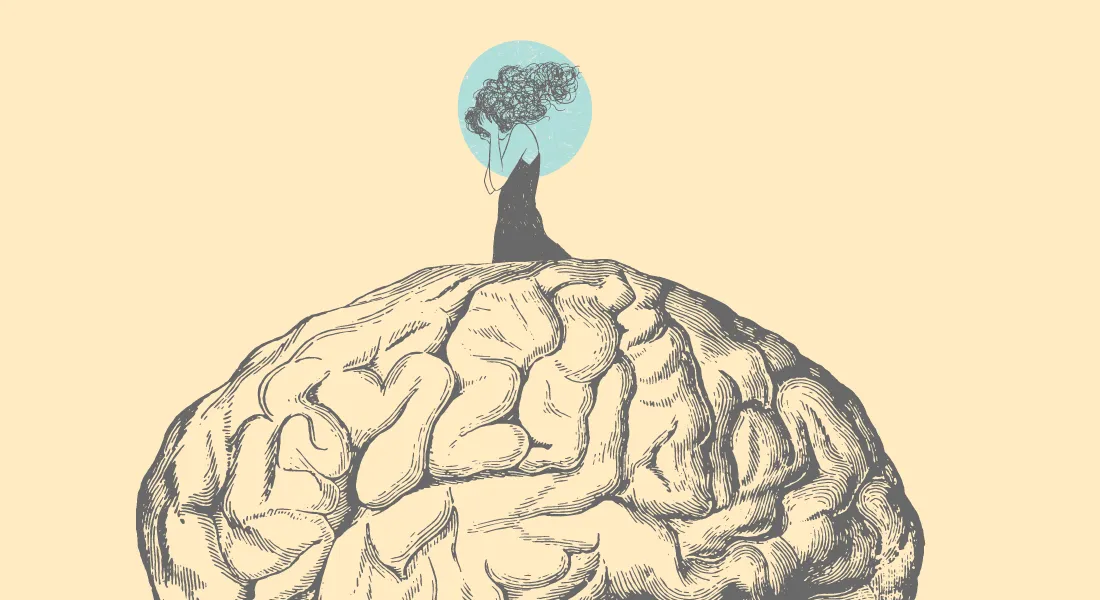Depression can lead to memory dysfunction. This study may pave way for new drugs
PET scanning of patients has identified changes in the serotonin system in patients suffering from depression and memory dysfunction, a new joint study suggests.

In many patients, depression is associated with memory dysfunction. Now the results of a large study involving brain scans show that patients with moderate to severe depression have 7-10 per cent fewer serotonin 4 receptors in the brain than healthy test subjects.
The researchers from the University of Copenhagen, Psychiatry in the Capital Region and Rigshospitalet performed PET scans of 90 patients with depression who still had not received treatment and just as many healthy test subject of the same age. A PET scan will reveal the amount of serotonin 4 receptors in the brain.
“You cannot tell from a scan whether a person is depressed or not. But we could tell that there was a difference between the patients and the test subjects. The former had fewer serotonin 4 receptors,” says Clinical Professor Gitte Moos Knudsen from the Department of Clinical Medicine and the Neurobiological Research Unit at Rigshospitalet.
Largest PET brain scan study of its kind
Previous studies have shown that the serotonin 4 receptor affects the risk of depression, while others have shown that it is associated with human memory. The new results, which have just been published in the scientific journal JAMA Psychiatry, are based on the largest PET brain scan study ever to have been conducted on patients suffering from depression. The aim of the study was to describe the connection between depression, memory dysfunction and low receptor levels.
This knowledge may contribute to the division of depression into several disorders and the design of more targeted treatment of these disorders.
“A lot of people with depression experience cognitive difficulties, which affect the way they think. Many also experience memory dysfunction. In fact, it is a serious and underestimated problem which many deal with once they return to work. Because their memory does not necessarily return when their spirits rise. And we fail to treat these problems with the medication available to us,” says Gitte Moos Knudsen, who worked on the study along with colleague and Clinical Research Associate Professor Vibe Gedsø Frøkjær.
The new knowledge – that patients had up to 10 per cent fewer receptors than the average individual – paved the way for a study of whether the patients with the lowest serotonin 4 receptor levels were also the ones with the most severe form of memory dysfunction. To answer this question, the researchers conducted neuropsychological tests.
“We wanted to know whether the patients with the lowest receptor levels were also the ones with the most severe form of memory dysfunction. There was a direct connection between the amount of serotonin 4 receptors in the brain and memory function,” says Gitte Moos Knudsen.
Step on the way to new and more targeted treatment
The results of the new study can help identify patients with severe memory problems. This paves the way for new drugs targeted at this particular receptor, which may help patients with low serotonin 4 receptor levels deal with their memory problems.
Gitte Moos Knudsen also hopes the results demonstrating the connection between serotonin 4 receptor levels and memory function will be a step on the way to dividing depression into subgroups.
“More and more people agree that the term depression covers not one, but several different disorders. I believe we have found a serotonergic subtype with a low level of serotonin 4 receptors. This may contribute to the division of depression into several disorders and the design of more targeted treatment of these disorders,” she says.
The results are part of the research project NeuroPharm with participants from Psychiatry in the Capital Region, the University of Copenhagen and the Neurobiological Research Unit and Department of Clinical Psychology, Nuclear Medicine and PET at Rigshospitalet. The project is funded by Innovation Fund Denmark and other non-commercial funds.
Read the scientific article in JAMA Psychiatry.
